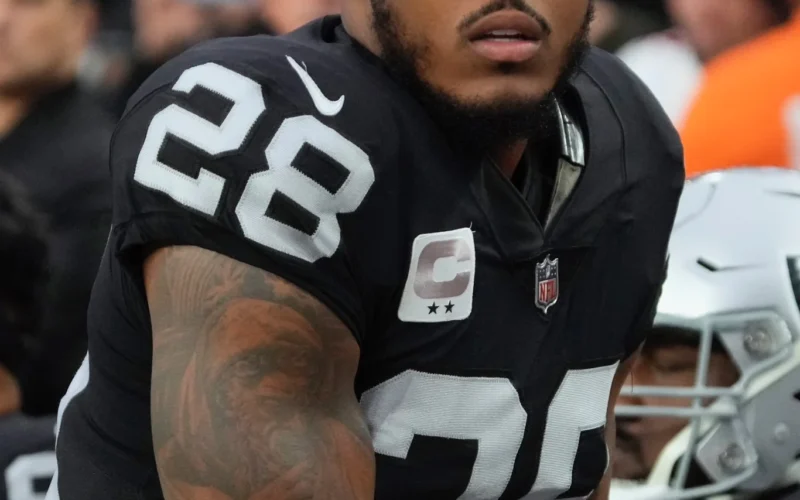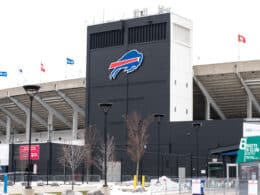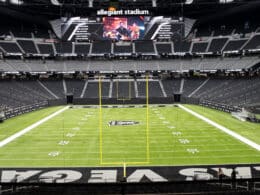Deadline drama unfolded at the Las Vegas Raiders’ facility as star running back Josh Jacobs, fresh off leading the league in rushing last season, and teammate Maxx Crosby found themselves sitting together in a car, eagerly waiting to sign an extension just before the franchise tag deadline. The tense situation shed light on the harsh reality that running backs in the NFL are struggling to secure big money deals.
Despite his outstanding performance on the field, it appears that Jacobs, along with other running backs Saquon Barkley (Giants) and Tony Pollard (Cowboys), faced difficulty in obtaining long-term contracts. This lack of success has sparked a contentious debate surrounding the fair pay scale for players in this pivotal position.
The potential extension for Jacobs would have been a significant milestone in his career, cementing his future with the Raiders and rewarding him for his outstanding contributions to the team’s success. However, the negotiations proved to be a challenging journey, and with the 4 p.m. deadline on July 17th rapidly approaching, the pressure was mounting.
According to reliable sources, the talks were inching closer to an agreement. NFL Network’s Tom Pelissero revealed that Jacobs and the Raiders were tantalizingly close to finalizing the extension deal. So close, in fact, that Jacobs and Crosby opted to remain in the car at the team facility, eagerly anticipating the momentous news.
The franchise tag, which Jacobs and several other notable running backs received this offseason, meant that they were locked into one-year contracts with their respective teams. This tactic provided teams with flexibility and control but left players like Jacobs seeking long-term security and financial stability.
As the franchise tag carried the risk of not being officially signed, Jacobs was not compelled to attend team training camp until a deal was reached. This added an extra layer of uncertainty and anticipation to the already high-stakes negotiations.
The situation with Jacobs and the Raiders also raised broader questions about the value placed on running backs in today’s NFL. Despite being crucial playmakers on the field, their market value seems to have diminished in the eyes of team management. The reluctance to commit to long-term deals has left many running backs feeling undervalued and underappreciated for their contributions to their respective teams.
Observers and analysts weighed in on the matter, expressing varying opinions on the pay scale for running backs. While some argued that their significance on the field warrants substantial compensation, others pointed to the increased emphasis on passing plays and the rise of dual-threat running backs, which may have influenced teams’ financial decisions.
The outcome of the negotiations between Jacobs and the Raiders has ramifications beyond just one player and one team. It has sparked a broader discussion within the league about player salaries, positional value, and the evolving landscape of the NFL.
As the league and the NFL Players Association continue to navigate the complexities of player compensation, the experiences of players like Jacobs highlight the challenges and uncertainties they face in their pursuit of financial security and recognition for their talents.
For now, Jacobs and his fellow running backs who received the franchise tag will prepare for the upcoming season, aiming to prove their worth on the field once again while keeping a watchful eye on future contract negotiations that may determine their long-term future in the league.










